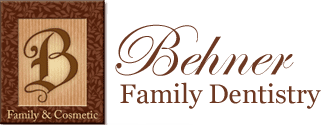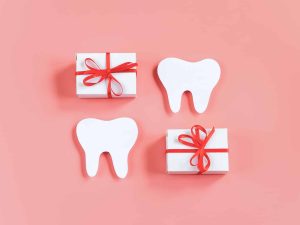
Introduction: The Connection Between Nutrition and Oral Health
The health of your teeth and gums is not only dependent on regular dental checkups and proper oral hygiene, but also on the foods you eat. Eating a well-balanced diet can have a significant impact on your oral health, and understanding which foods are beneficial and which ones to avoid can make a real difference. In this post, we will explore several foods that strengthen your teeth and gums, as well as tips for maintaining good oral health through proper nutrition.
A diet rich in vitamins and minerals promotes healthy teeth and gums, while poor nutrition can contribute to tooth decay, gum disease, and other oral health issues. By incorporating the right foods into your daily routine, you can help keep your teeth and gums strong and healthy for years to come.
Calcium-Rich Foods: Dairy and Beyond
Calcium is a key nutrient for strong teeth and bones. It helps to maintain the structure and density of your teeth, and it also contributes to overall oral health. Dairy products such as milk, cheese, and yogurt are excellent sources of calcium, but they’re not the only options.
Leafy green vegetables like kale, spinach, and collard greens are also rich in calcium, making them a great option for people who are lactose intolerant or simply looking to add more variety to their diet. Almonds, sesame seeds, and tofu are other plant-based alternatives that can help you get your daily dose of calcium.
Foods High in Vitamin D: The Sunshine Vitamin
Vitamin D plays a crucial role in the absorption of calcium, which is essential for strong teeth and bones. In fact, without sufficient vitamin D, your body cannot properly utilize the calcium you consume. Some of the best sources of vitamin D include fatty fish such as salmon, mackerel, and sardines, as well as egg yolks and fortified foods like milk and orange juice.
Since sunlight is another natural source of vitamin D, spending some time outdoors each day can also help improve your vitamin D levels. Just remember to wear sunscreen and avoid excessive sun exposure to protect your skin.
Foods Rich in Vitamin C: Boost Your Gum Health
Vitamin C is essential for maintaining healthy gums, as it helps to repair and regenerate gum tissue. This powerful antioxidant also helps to reduce inflammation and fight off bacterial infections, which can lead to gum disease. Citrus fruits like oranges, grapefruits, and lemons are well-known sources of vitamin C, but there are plenty of other options too.
Some other vitamin C-rich foods include strawberries, kiwi, bell peppers, broccoli, and Brussels sprouts. By incorporating a variety of these foods into your diet, you can help to keep your gums healthy and strong.
Crunchy, Water-Rich Foods: Nature’s Toothbrushes
Eating crunchy, water-rich fruits and vegetables not only provides essential nutrients, but also helps to stimulate saliva production and clean your teeth naturally. Saliva helps to neutralize acids and wash away food particles, which can contribute to tooth decay and gum disease. Some great options to consider include apples, carrots, celery, and cucumbers.
Incorporating these foods into your diet can be as simple as adding them to your favorite salads, snacking on them throughout the day, or even enjoying them as a healthy dessert alternative.
Foods High in Phosphorus: Supporting Tooth Enamel
Phosphorus is another essential mineral that helps to maintain strong tooth enamel, the outer layer of your teeth that protects them from decay. Foods high in phosphorus include lean meats, poultry, fish, nuts, seeds, and whole grains.
By incorporating these phosphorus-rich foods into your diet, you can support the health of your tooth enamel and reduce the risk of cavities and tooth sensitivity.
Sugar Substitutes: A Sweet Solution
While it’s well-known that excessive sugar consumption can contribute to tooth decay, completely eliminating sugar from your diet can be challenging. One solution is to consider using sugar substitutes such as xylitol or stevia. These natural sweeteners can satisfy your sweet tooth without increasing your risk of cavities.
Xylitol, has been shown to help reduce the growth of cavity-causing bacteria and can even help to remineralize your teeth. Try incorporating these sugar substitutes into your beverages, baked goods, or desserts as a healthier alternative to sugar.
Tea and Oral Health: A Surprising Ally
Though it may come as a surprise, certain teas can benefit your oral health. Green and black teas contain compounds called polyphenols, which have been shown to fight off harmful bacteria in your mouth. By reducing the growth of bacteria and preventing them from producing acid, these teas can help protect your teeth from decay.
To get the most out of your tea, avoid adding sugar and choose unsweetened varieties. Additionally, be mindful of the potential for staining when it comes to black tea; rinsing your mouth with water after drinking can help minimize discoloration.
Hydration: Don’t Forget to Drink Up
Staying well-hydrated is essential for maintaining good oral health. Drinking water throughout the day helps to rinse away food particles and bacteria, as well as neutralize acids in your mouth that can lead to tooth decay. Aim to drink at least eight glasses of water per day, and consider swapping out sugary beverages for water or unsweetened tea.
If you find it difficult to drink plain water, try adding a slice of lemon or cucumber for a refreshing twist. Just be cautious about consuming too many acidic beverages, as they can contribute to enamel erosion over time.
Conclusion: A Balanced Diet for a Healthy Smile
Incorporating these nutritious foods into your daily routine can significantly improve the health of your teeth and gums. By maintaining a well-balanced diet rich in vitamins, minerals, and other essential nutrients, you can keep your smile strong and bright for years to come.
Don’t forget that regular dental checkups and cleanings are equally important in maintaining your oral health. If it’s been a while since your last visit, or if you’re interested in learning more about how nutrition can impact your dental health, book an appointment with our dental professionals today book an appointment with our dental professionals today. Together, we can help you achieve the healthy, radiant smile you deserve.





